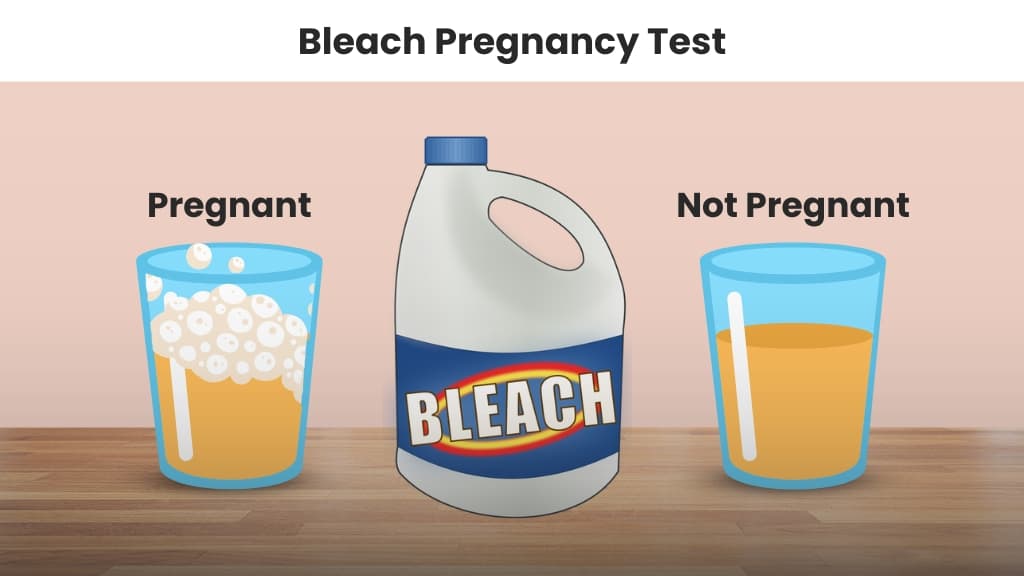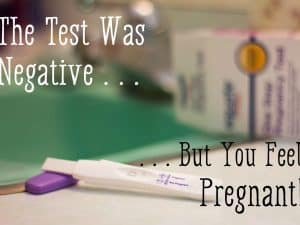
Table of Contents
Every woman gets a pregnancy test done at home to confirm her suspicions of being pregnant. A lot of women use tests available widely across pharmacies, but some women may prefer to make their own. Bleach pregnancy tests are just one such homemade pregnancy test. Although there is no scientific evidence to suggest that the pregnancy test with Bleach is accurate or effective, it is still something women rely on.
Let’s learn more about it!
First Things First, How Does a Pregnancy Test Work?
During pregnancy, your body creates the placenta within your uterus. Human chorionic gonadotropin (hCG), also known as the pregnancy hormone, is produced by the placenta while providing nutrients to your unborn child. All pregnancy tests are designed to detect this hormone to confirm pregnancy.
By mixing urine with a household chemical like bleach, homemade pregnancy tests like the bleach test for pregnancy claim to be able to detect the pregnancy hormone.
Now, How to Perform a Bleach Pregnancy Test?
To conduct a bleach pregnancy test, you will need two cups, a fresh sample of the woman’s urine, and household bleach that does not contain ammonia. One must be marked “A,” and the other “B”. The bleach pregnancy test claims that if the bleach and urine mix is foamy, a woman is pregnant. So here’s what you can do to conduct a pregnancy test with bleach:
- Fill the first cup about ¼ full with a fresh sample of urine.
- Fill the second cup about ¼ full with bleach.
- Slowly pour the bleach into the urine cup.
- Wait a few minutes to see how it reacts.
- If it’s not frothy, the pregnancy bleach test is negative.
Here, let us remind you that there is no scientific evidence to support this.
So, How Safe is The Bleach Pregnancy Test?
Although there are some risks associated with bleach pregnancy tests, there are only a few studies on their safety.
Bleach Exposure
Bleach is a chemical that corrodes and can be harmful to humans. If someone inhales its fumes and gets it on their skin, eyes, throat, or mouth it is even more dangerous. Here’s what you can do in such cases:
- Leave the room if you begin to experience irritation in your eyes or lungs while performing the bleach pregnancy test.
- Call 911 if you’re having trouble breathing.
- Wash the bleach-contaminated area thoroughly for 15 to 20 minutes if it gets on your eyes or skin.
- Wear gloves and goggles, cover any exposed skin, and seal the bleach when you’re done using it.
- Keep it away from children to prevent exposure.
- Open the windows and use a fan to have good ventilation in the room.
Exposure to Chlorine
Chlorine gas can be produced when bleach is combined with other chemicals like ammonia, a chemical found in urine. Chlorine is harmful and can cause a variety of symptoms, including:
- Watery eyes
- Irritated nose and throat
- Shortness of breath
- Wheezing
- Chest pain
- Nausea
Unreliable Outcomes
There is no guaranteed accuracy of a bleach pregnancy test.
Other Factors to Consider When Using Pregnancy Tests
Your urine and blood will contain the pregnancy hormone, human chorionic gonadotropin, at this point. Keep in mind that the fertilized egg can attach to the uterus at varying times and that every woman’s ovulation cycle may vary from month to month. The timing of when the pregnancy hormone is released and when it can be detected may be affected by this.
It’s critical to tell your doctor right away that you’re pregnant. The doctor may advise you to have an ultrasound, a lab-repeated urine test, or a blood test, depending on how far along you are in your pregnancy.
Alternatives to The Bleach Pregnancy Test
If you think you might be pregnant, a home pregnancy test might be better than using bleach. If you wait until the first day after your first missed period to take the test, you probably will get the most accurate results.
The dipstick end of the majority of pregnancy tests will be inserted into your urine stream. The dipstick will display the results as a plus or minus sign, one or two lines, or the words “pregnant” or “not pregnant” a few minutes later.
The accuracy of various pregnancy tests varies, even though the majority of them claim to be 99 percent accurate. Repeat the test a week later if you suspect you are pregnant but receive a negative result from your home pregnancy test. Always check the expiration date and follow the pregnancy test’s instructions. It is possible to receive a positive result from a home pregnancy test even if you are not pregnant, although this is extremely uncommon. This is called a false positive.
A Final Word: Which Bleach Should I Use for a Home Pregnancy Test?
Bleach that you normally use for cleaning or other purposes at home can be used. Avoid using bleach of industrial grade or bleach that is colored and scented because these products may contain chemicals that can alter the results.
Precaution: Bleach with ammonia should not be used, and it should never come into direct contact with the skin or eyes because it can cause burning and irritation. Also, a pregnancy test with bleach has no scientific backing to support its accuracy.





